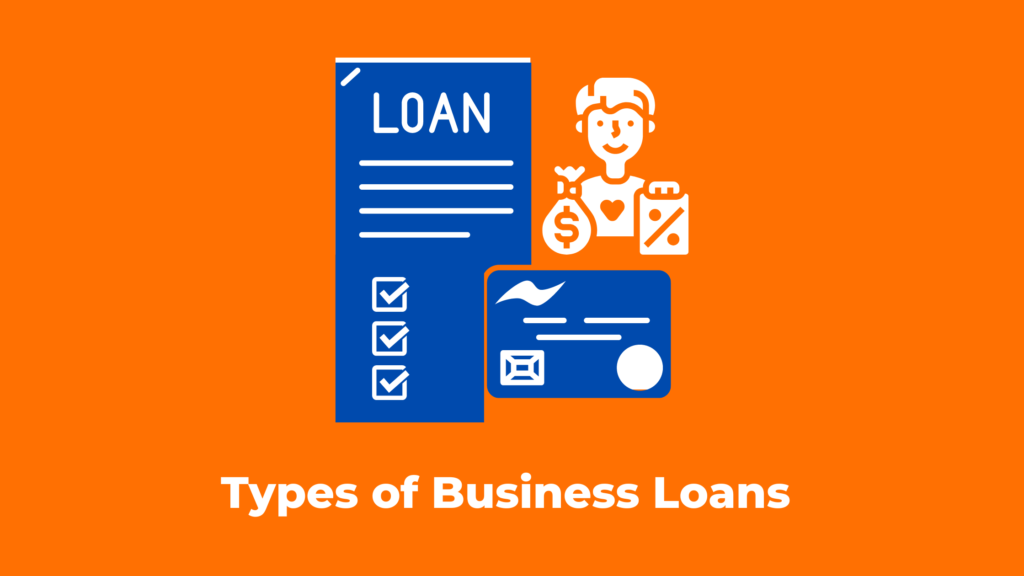There are a lot of different options to choose from when it comes to getting a business loan. So how do you know which one is the right fit for your business?
In this post, we’ll break down nine different types of business loans and explain what each one is best used for. We’ll also help you figure out which type of loan is the right fit for your unique situation.
9 Different Types of Business Loans
1. Term Loans
For business owners, having access to capital is essential. Term loans can provide the funds needed to cover a variety of business expenses, from inventory and equipment purchases to working capital.
In addition, term loans can be used to finance business expansion plans or unexpected costs. With a term loan, business owners can get the funding they need without having to give up equity in their business.
2. Equipment Loans
For businesses that need expensive equipment but can’t afford to buy it outright, equipment loans can be a lifesaver. With an equipment loan, businesses can get the money they need to purchase essential items like machinery, vehicles, and office furniture.
An equipment loan is paid back over time, with the business making regular payments until the debt is repaid in full. In short, it can be a great way for businesses to get the equipment they need without putting a strain on their finances.
Equipment loans can also be used to finance repairs or upgrades to existing equipment. So whether you’re looking to buy new equipment or keep your business running smoothly, an equipment loan could be the answer.
3. Commercial Real Estate Loans
Commercial real estate loans can provide a much-needed financial boost for businesses of all sizes. Whether you’re looking to expand your operations or simply keep your business running smoothly, it can make all the difference.
With a commercial real estate loan, you’ll have access to the funds you need to give your business a place to operate in. Whether you’re looking to purchase a new property, renovate your existing space, or simply cover operational costs, it can give you the flexibility and security you need.
4. Business Lines Of Credit
A business line of credit (BLoC) is a type of business loan that allows entrepreneurs to borrow money up to a certain amount. The business owner can then use the money as needed and only pays interest on the amount borrowed. It can be a useful tool for anyone who needs access to cash but may not qualify for a traditional business loan.
Business lines of credit can also help business owners manage their cash flow by giving them flexibility in how and when they make repayments. For example, business owners can make smaller payments during slower periods and larger payments during busier times. This can help business owners better manage their finances and avoid falling behind on their loan repayments.
5. SBA Loans
SBA loans are backed by the Small Business Administration, a government agency that provides support and resources for small businesses. SBA loans typically have lower interest rates than traditional bank loans, and they can be used for a variety of purposes, including working capital, business expansion, and equipment purchases.
SBA loans can also be used to refinance existing debt. If you’re a small business owner who is looking for financing to help your business grow, an SBA loan may be a good option for you.
6. Franchise Loans
A franchise loan is a type of business loan specifically designed to help franchisees get the funding they need to start or expand their business. Franchise loans can be used for a variety of purposes, including working capital, equipment purchases, and real estate acquisition.
One of the main benefits of franchise loans is that they often come with lower interest rates and longer repayment terms than traditional business loans. This can make it easier for franchisees to manage their cash flow and keep their business operations running smoothly.
In addition, franchise loans may also be available with SBA guarantees. This can further reduce the risk for lenders and make it easier for franchisees to obtain financing.
7. Invoice Financing
Invoice financing can be a helpful way for businesses to get the money they need to grow. Invoice financing is when businesses sell their invoices to a lender in order to get cash up-front. This can be helpful because it allows businesses to get the money they need right away, without having to wait for their customers to pay.
Moreover, invoice financing can help businesses improve their cash flow and credit rating. This is because when businesses sell their invoices, they are effectively giving themselves a short-term loan. As long as businesses make their payments on time, they will improve their credit rating.
8. Merchant Cash Advances
A merchant cash advance is a type of funding that allows businesses to borrow money against future sales. The repayment terms are typically structured as a percentage of daily or weekly credit card sales, which means that businesses can make repayments based on their sales volume.
Merchant cash advances can be a flexible and convenient option for businesses with fluctuating revenue, and they can also provide a much-needed influx of cash during slow periods. It can be used for a variety of purposes, including business expansion, inventory purchases, and marketing campaigns. Plus, the funds can be accessed within a few days, which makes merchant cash advances an attractive option for businesses in need of quick funding.
9. Microloans
Microloans are a type of financial assistance typically given to small businesses and entrepreneurs. It can be used for a variety of purposes, including start-up costs, inventory, or equipment.
One of the main benefits of microloans is that they can help businesses to get off the ground. For many small businesses, traditional loans can be difficult to obtain due to a lack of collateral or credit history. However, microloans typically have less stringent requirements, making them more accessible to entrepreneurs.
Furthermore, microloans can be an important source of capital for businesses in underserved communities. By supporting small businesses, microloans can help to create jobs and spur economic growth.
How to Choose the Right Business Loan For You
Deciding to take out a business loan is a big decision. After all, you’ll be responsible for repaying the loan, plus interest, over a period of time. But if you need financial assistance to start or grow your business, a business loan may be the right option for you. So how do you choose the right business loan? Here are a few things you need to consider:
Purpose Of The Loan
What do you need the money for? Whether you’re looking to purchase inventory, finance equipment, or cover operating costs, make sure you choose a loan that will meet your needs.
Terms Of The Loan
How long will you have to repay the loan, and what is the interest rate? Be sure to compare rates from different lenders to get the best deal.
Current Financial Situation
Can you afford the monthly payments? Make sure you have a clear understanding of your financial situation before taking out a loan.
By taking the time to consider your options carefully, you can be sure to choose the right business loan for your needs.
Wrapping Up
If you’re feeling inspired to start your own business but don’t have the cash flow to do it on your own, a business loan may be the perfect solution for you. With it, you can make your dream business reality and watch it grow into the successful enterprise you always knew it could be.
As you’ve learned above, there are a variety of different types of business loans available, you can use 1West to compare different lenders. So take some time to research which one is best for your specific needs.

Pardeep is the founder and editor of Small Investment Ideas. He believes that everyone can change their life with the help of small investments and achieve financial freedom.


